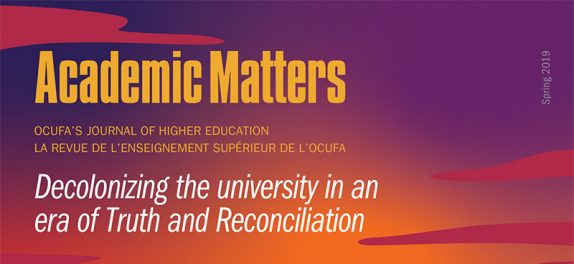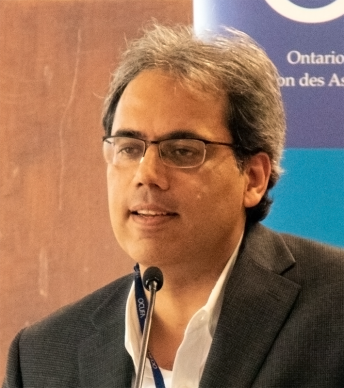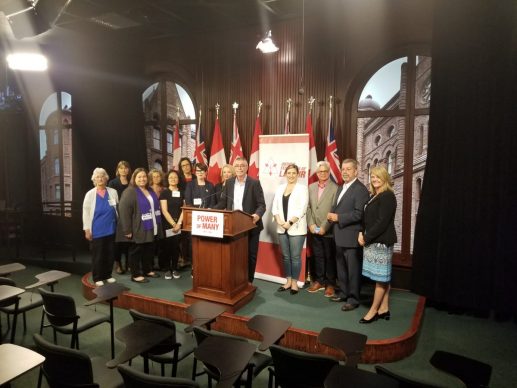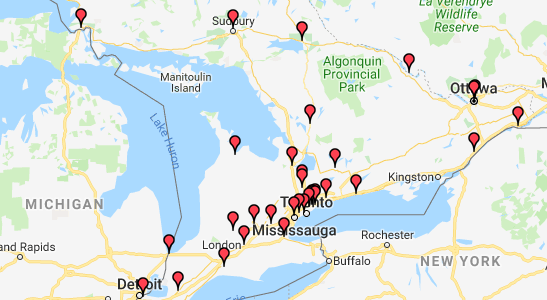Toronto, Sep. 4, 2019 – Ontario faculty are warning that the Ford government’s so called “performance” funding model for postsecondary education is reckless, ineffective, and dangerous. The new funding model will link 60 per cent of government funding for universities ($2.2 billion dollars) to an arbitrary set of metrics chosen with no consultation. These metrics will not actually measure “performance” but are likely to be used as an excuse to cut university budgets. Across Ontario, OCUFA estimates that this new funding model could mean cuts of over $500 million dollars that will substantially undermine our postsecondary institutions’ academic missions and mandates.
“What will happen to the hundreds of millions of dollars this government is threatening to cut from university budgets? Will it be reinvested in public postsecondary education or cut from the system? The academic year is about to start and we have no clarity about funding for Ontario’s universities.” said Rahul Sapra, President of the Ontario Confederation of University Faculty Associations. “This government must stop operating in secrecy and be honest with the Ontario public, who are deeply concerned about the damage this new funding formula will do to our public postsecondary education system. It’s time for Doug Ford and Ross Romano to come clean and tell Ontarians how much they intend to cut from postsecondary education.”
The Ford government’s performance funding fantasy prioritizes politics over sound public policy. By design, performance funding rewards institutions that meet arbitrary targets while penalizing those that do not, denying vital funding to those institutions that need it most to improve their educational outcomes. This rash and drastic funding shift will create a system of winners and losers by exacerbating inequities between institutions, destabilize Ontario’s postsecondary education system, work against quality improvement, pose a serious threat to equity and diversity at Ontario’s universities, and punish students studying at institutions that have already seen their budgets reduced by the Ford government. The cuts resulting from performance funding will be especially devastating for smaller universities and will undermine access for Indigenous students and other equity seeking groups.
Performance metrics cannot credibly reflect the breadth and depth of a student’s education, the long-term benefits of basic research projects, or the contributions of faculty members and academic librarians. In fact, evidence shows that performance funding cannot even produce the outcomes it promises. Instead, it has been shown to have numerous negative consequences, including an increased hiring of precariously employed contract faculty, a reduction in the admission of traditionally marginalized students, shorter programs with less quality control, lower graduation requirements, increased campus bureaucracy, and less institutional autonomy as government exercises more influence over which programs are offered.
“We don’t trust Doug Ford to measure quality at Ontario universities. Instead of putting the province’s postsecondary institutions at risk with this reckless and unstable funding model, the government should put students first and invest in Ontario’s universities,” said Sapra. “As it turns out, additional resources actually increase graduation rates. Unfortunately, Ontario is dead last in per-student funding in Canada. The last thing we need is Doug Ford meddling with Ontario’s universities.”
Additional, stable public funding for Ontario’s universities will help students by ensuring better academic support services, lower faculty-to-student ratios, and reduced tuition fees. This additional funding will also support good jobs on campus by providing universities with the resources to invest in faculty renewal and hire precariously employed contract faculty into secure full-time positions. It is time for Doug Ford to halt this reckless and destructive ideological attack on the foundations of Ontario’s postsecondary education system and start working with faculty, students, and staff to invest in the future of our universities.
Founded in 1964, OCUFA represents 17,000 faculty and academic librarians in 30 faculty associations across Ontario. For more information, please visit www.ocufa.on.ca.
–30–
For more information or to arrange an interview, contact:
Ben Lewis, Communications Lead at 416-306-6033 or communications@ocufa.on.ca









